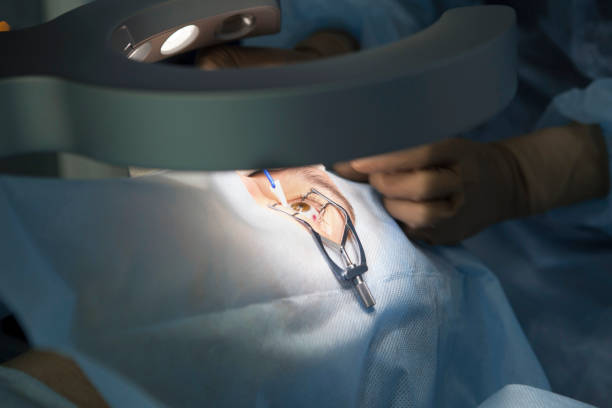If you usually travel by car, it's understandable that you'd want to know when you can safely resume driving after having conventional or laser cataract surgery. Your surgeon, on the other hand, will most likely perform the surgery on different occasions, ranging from one day to about two weeks apart. This means that your vision in one eye will be significantly different from the other for some time. Depth perception, in particular, can differ considerably, which can be difficult.
As a result, if you are having cataract surgery, the best advice is to avoid driving until both eyes have been operated on. The recovery time is usually only a day or two. Some people's eyes may be slightly swollen after the procedure for a short period of time and if this is the case, you should wait for a full recovery before driving.
Before driving again, carefully consider whether your vision has stabilised. If it hasn't fully recovered, a miscalculation could have serious consequences.
What Is Femtosecond Laser Cataract Surgery?
The safest, most cutting-edge, and most individualised method of correcting near sightedness, farsightedness, or astigmatism is Femtosecond Laser Cataract Surgery.
Every eye has distinct characteristics, like every fingerprint, so treatment must respect this individuality. The Vission Eye Centre provides you with an advanced and cutting-edge treatment option.
Advantages of Femtosecond Laser Cataract:
This laser is so named because it emits infrared light in extremely short pulses measured in femtoseconds. The main benefits of Femtosecond laser cataract surgery are explained in greater detail below.
- The lastest technology enables accurate incision making and aids in cataract removal thus minimizing human error
- All hard and difficult cases are easier to be operated on this Femtosecond platform, enable less damage to the cornea and helps the patient see better post operatively.
- Because of the femtosecond laser's precision, there is less pressure on the eye, and irregular or incomplete cuts in the corneal tissue are avoided.
Essentially, there are several advantages in terms of patient safety and the likelihood of successful treatment that make it worth it to spend a little more.
When Can You Drive After Laser Cataract Surgery?
The answer to this question can be obtained from a variety of considerations. 24 to 48 hours after cataract surgery, the majority of patients feel well enough to drive, but some people recover more quickly or more slowly than others.
In general, you should postpone driving until after your appointment for the ophthalmologist review. Even if you feel comfortable operating a vehicle, your doctor can assess your vision during this visit to ensure you meet regional standards for driving vision.
Your vision won't immediately improve after cataract surgery. Much sooner than that, the average person will discover their vision has improved enough to drive safely. It may take 4 to 6 weeks to fully stabilise. As the corneal incision heals and the intraocular lens implant adapts to its new location in the eye, your vision may become slightly blurry. Since many patients also experience glare sensitivity, soreness, or gritty eyes, driving may be uncomfortable.
Examine your Eyeglass Prescription
After Femto laser treatment for the eye, it's a good idea to ensure your current prescription glasses still give you the clearest vision possible before you get back behind the wheel. A patient's vision may occasionally improve to the point where they no longer require glasses, save perhaps for reading small print or in low light. So, if you occasionally need to wear glasses for a specific activity after your surgery, make sure your prescription is updated to reflect your new replacement lens.
Femto Laser Treatment for Eye by The Vission Eye Centre
Cataract and Phaco-Emulsification Surgery, as well as Vitreo-Retinal Surgery, are Dr Mehta's areas of expertise. He has successfully restored sight in some of the oldest living patients. From cataract surgery to LASIK to retinal detachment surgery, he has the expertise to handle the most challenging cases.







